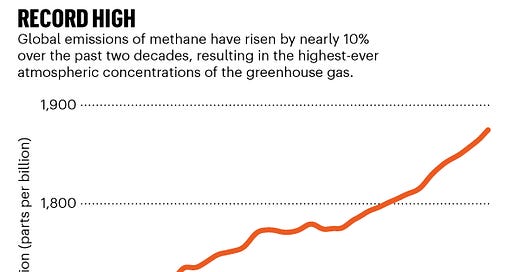I will continue my little series of thought experiments on the topic of Jesus Christ and “Christ consciousness.” I want to preface this by re-stating that I am not claiming to be wiser, better, or “more spiritual” than anyone else by exploring this subject. Also, I am trying to write this series without relying on quotes from other sources, which can be a crutch. In the comments to the last essays, there are many recommendations of books that sound amazing. I wish I had time to explore all or even most of them.
I was inspired to write this series, in part, because various friends of mine living around New York City and State — kind, decent people — are starting to buy guns. People sense that the fabric of American society is ripping apart. Our situation feels increasingly insecure, unstable. Many people suspect some kind of civil war or civil strife is possible, if not likely or even inevitable.
There are many different ways to respond to this sense of social breakdown on the horizon. Personally, I do not feel drawn to owning a fire-arm. I believe in nonviolence and in resolving conflict through nonviolent means. I feel that more guns can only increase the general insecurity, anxiety, and sickness of our situation as a whole, even if they provide a sense of personal protection and power. I don’t want to contribute to this.
At the same time, it seems increasingly obvious that rational dialogue — whatever that actually means — has little hope of addressing the deepening fissures and increasing polarization happening now. I’m currently reading Win Bigly, a book by Dilbert cartoonist Scott Adams (who was called “evil” by Forbes). Much earlier than most, Adams correctly predicted that Trump would win the 2016 election because he possessed “weapons-grade persuasion skills.” Adams looks at the overwhelming power that cognitive bias and emotional factors play in how people make decisions. He convincingly argues that people are 90% irrational, prey to delusions and hallucinations, and he reviews the psychological mechanisms that “Master Persuaders” like Trump employ to their advantage.
In How Soon Is Now (2016), I outlined a systems design approach to the ecological emergency confronting us as a species. I had a naive faith that the logic of the book’s arguments would reach a large audience and help inspire conversation as well as a global movement. Instead, I found that most people couldn’t connect with such an abstract, systems-level approach to a topic they find personally threatening and vast.
It is quite easy to persuade people to do what fits their perceived short-term self-interest or exacerbates their inherent biases, as Trump does. It is more difficult to persuade people to confront a difficult, intractable dilemma.
All of our lives need to change massively if we even want to try to forestall or avert an imminent breakdown of the Earth’s life support systems. This idea, understandably, falls into the blind spot of people’s entrenched cognitive biases. The idea that “everything has to change” is too overwhelming for people. Most people just want to live a good life within the current system. They are striving to pay off their mortgages or send their kids through college. They don’t feel they have energy for systems thinking or activism.
This sobering interview with Sir David King, formerly the chief scientific adviser to the UK government, reminded me why I felt compelled to write How Soon Is Now, even though it was difficult and depressing to focus on this theme for so long. King predicts, at current rates of sea level rise, Vietnam, among other countries, will be under water within thirty years and no longer capable of producing rice. We might see one hundred million more climate refugees in the next decade or two.
As I noted in earlier books, the gravest immediate threat we face is the eruption of methane from the thawing of the permafrost and other sources. Methane is over thirty times more potent as a heat-trapping gas than CO2, but only stays in the atmosphere for a few years, while CO2 hovers around for a century. According to King, we are not looking at a temperature rise of two or three degrees Celsius but, eventually, a rise of twenty degrees. The timing is unpredictable, but the timeline keeps shortening as many feedback loops in the climate system engage and self-reinforce. We all see the current droughts and crushing heat waves. We can project to imminent water shortages and famines looming ahead.
What this actually means is the inverse of “progress”: In all probability, the material and climactic conditions we are experiencing right now are the best we will ever know. Every week, month, and season that we have it as easy as we do today should be reason to celebrate. Up ahead, we are looking at a drastic uphill climb.
Yet, as I have noted a number of times, struggle, privation, and danger are not innately bad things. They provide tremendous opportunities for moral and spiritual growth. They can reveal, illuminate, our deepest qualities as human beings, perhaps even as “sparks of the divine,” or as the eternal Self, the Atman. I believe an entire life may be redeemed by a single act of courage or altruism — a sudden reaching beyond an individual’s normal boundaries and familiar patterns.
Before returning to Christ consciousness, I want to touch upon a point of immediate interest that relates indirectly. Here is a snippet from a Congressional hearing around abortion rights that included verbal sparring between Missouri Republican Senator Josh Hawley and UC Berkeley law professor Khiara Bridges. I found it difficult to watch.
Keep reading with a 7-day free trial
Subscribe to Liminal News With Daniel Pinchbeck to keep reading this post and get 7 days of free access to the full post archives.





